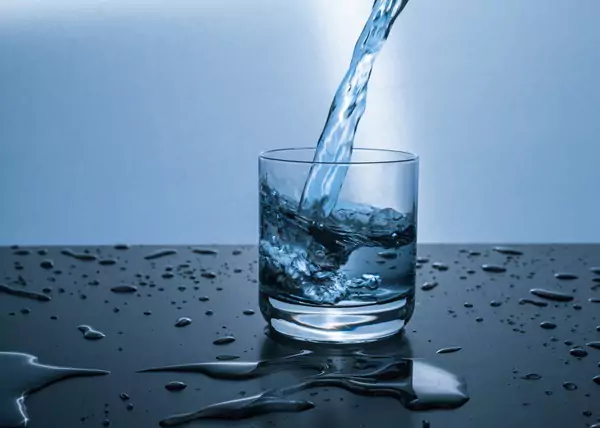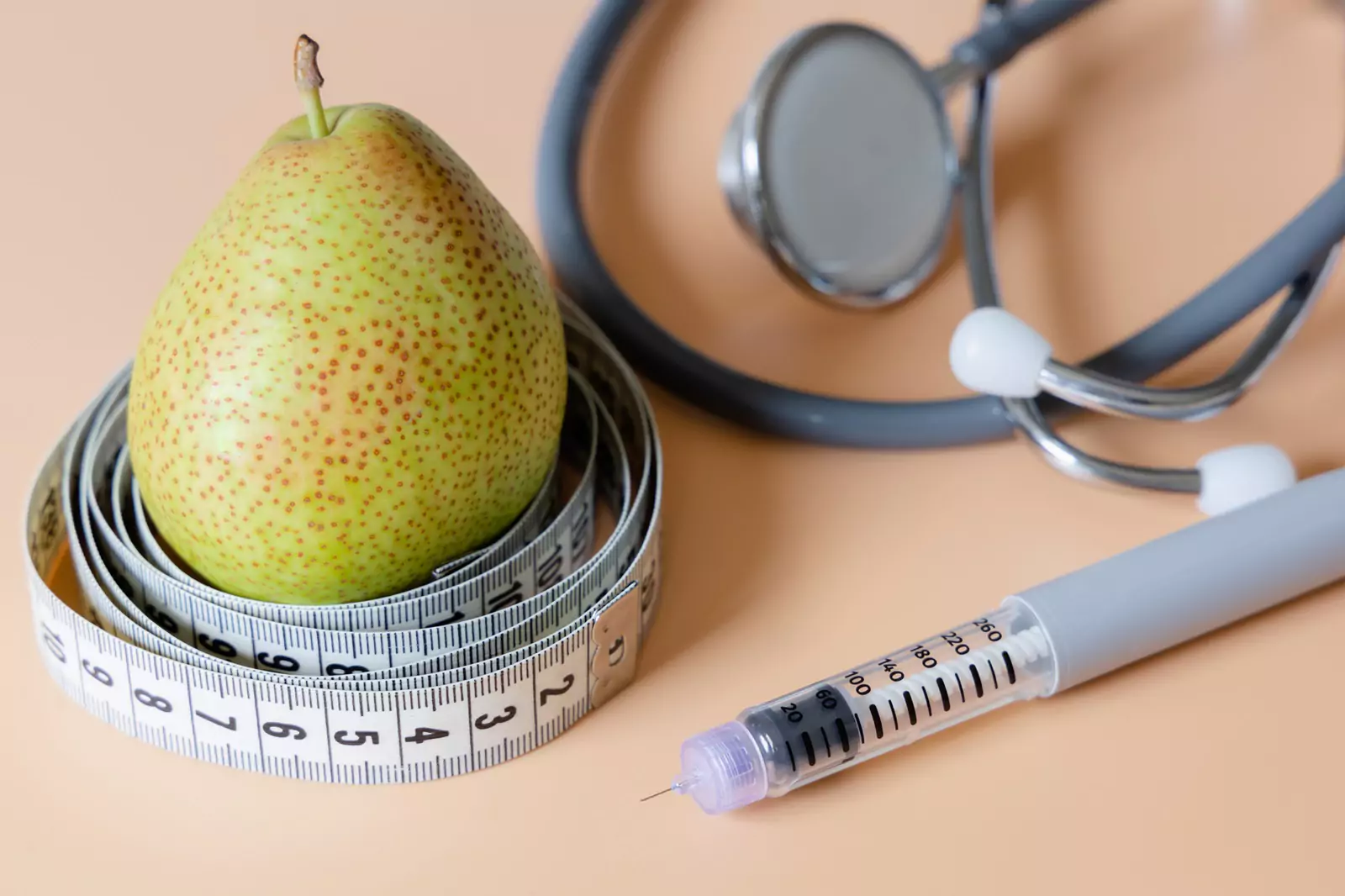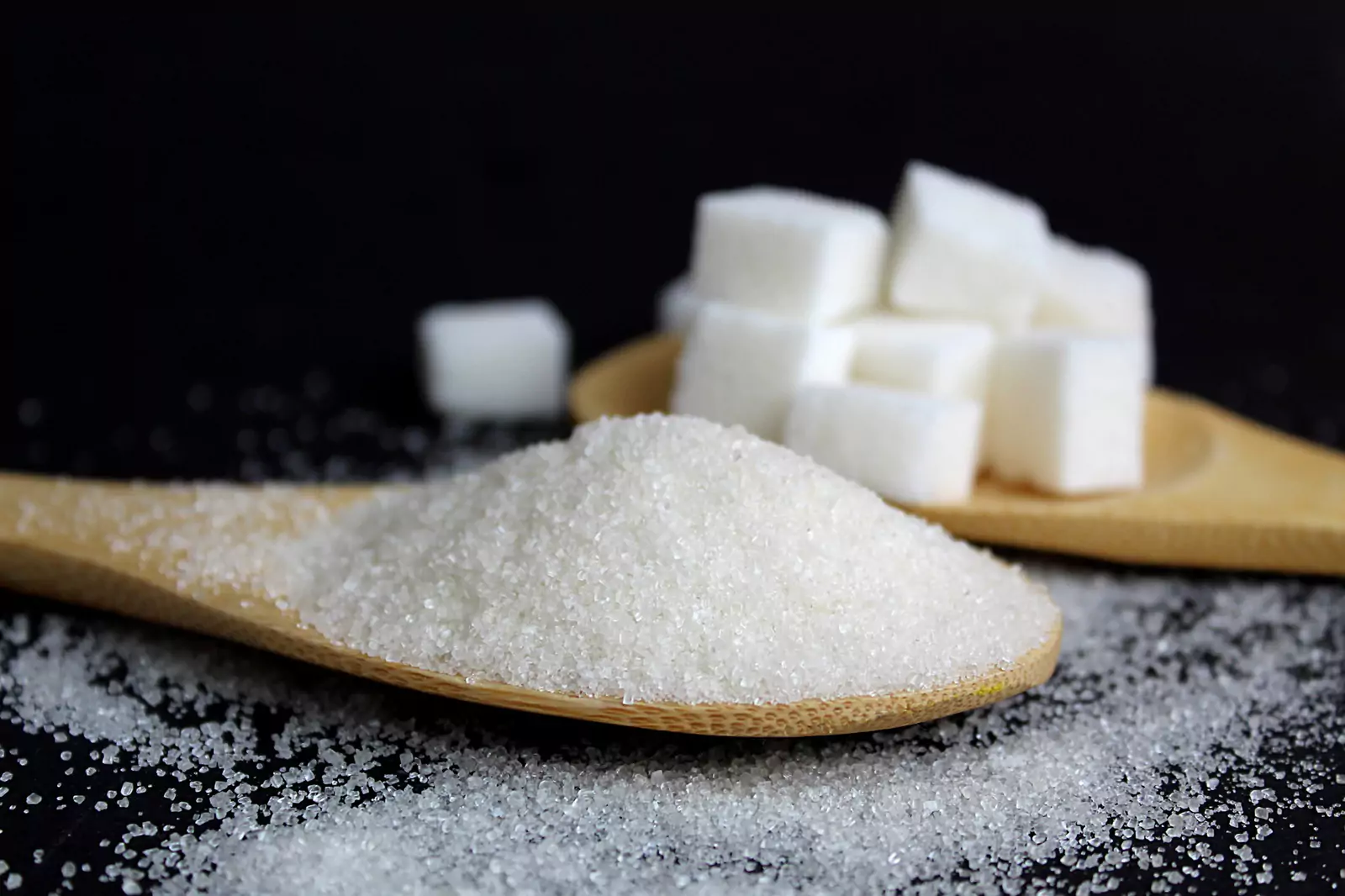
UP TO 40% OFF SITEWIDE






Can Drinking Water help with Lowering your Blood Sugar?


Table of Contents
- What is Blood Sugar?
- Do Different Types of Water help lower your Blood Sugar?
- Mineral Water
- Alkaline Water
- Carbonated Water
- How does Water Help to Lower Blood Sugar?
- Drinking Water before Meals
- Replacing Sugary Drinks with Water
- Does drinking water help flush sugar?
- Is there an amount of water I should drink to lower my blood sugar?
- Diabetes and Dehydration correlation
- Other Drinks that Lower Blood Sugar
- Conclusion
- About The Author
Did you know that one of the most cost-effective and simplest methods to lower your blood sugar levels is by drinking water? Water can be an important tool to managing blood sugar levels, as it helps to flush out sugar in your body and prevents dehydration.
In this article, we discuss how different types of water and the amount of water can help lower your blood sugar levels, as well as additional steps you can take. So, let’s dive in to find out how drinking water can help you lower your blood sugar levels.
What is Blood Sugar?
Blood sugar, also known as glucose, is an essential energy source for the body. It is found in carbohydrates, such as fruits, vegetables, grains, and other simple sugars. When these foods are digested, glucose is released into the bloodstream, where it is taken up by cells and used as fuel. Blood sugar levels are regulated by the hormone insulin, which helps glucose enter cells and be stored as glycogen.
However, if blood sugar levels become too high, the body cannot process it efficiently, resulting in a condition known as hyperglycemia. Hyperglycemia can be a serious condition and can be caused by a number of different factors, such as high-sugar diets, a lack of exercise, certain medications, and the inability of the body to produce enough insulin.
In turn, high blood sugar can lead to serious complications like diabetes, kidney disease, stroke, and heart disease. To prevent these complications, it is important to keep blood sugar levels within a healthy range. Overall, drinking plenty of water is an important part of managing diabetes and preventing serious complications. Of course, it is important to consult with your doctor before making any changes to your diet or lifestyle.
Do Different Types of Water help lower your Blood Sugar?
The question of whether or not drinking water can help with lowering your blood sugar is a common one and it’s important to understand that there is no one definitive answer. Different types of water can have different effects on your blood sugar levels, and research has not clearly established how each type of water affects blood sugar levels.
However, generally speaking, it does appear that drinking water can help with lowering your blood sugar, as it helps to flush out excess sugar absorbed during meals and snacks. Drinking water can also help you to feel full, which may help you to eat less and thus lower your blood glucose levels. Let’s talk about these in detail:
Mineral Water
Mineral water is water that contains a high concentration of dissolved minerals, such as magnesium, calcium, and potassium. Some studies have found that mineral water can have potential benefits for blood sugar control. Magnesium is a mineral that plays an important role in many bodily functions, including insulin sensitivity. Studies have shown that individuals with low magnesium levels are at a higher risk of developing type 2 diabetes.
Magnesium plays a role in glucose metabolism, and low levels of magnesium in the body can lead to insulin resistance, which is a major risk factor for type 2 diabetes. Some studies have found that supplementing with magnesium can improve insulin sensitivity and lower blood sugar levels. Mineral water that contains high levels of magnesium may also have similar effects.
A study published in the journal "Magnesium Research" found that drinking mineral water that was high in magnesium improved insulin sensitivity in overweight and obese individuals. It is important to note that not all mineral waters are the same, and the mineral content can vary depending on the source.
It's also important to note that drinking mineral water alone is not a substitute for a healthy diet and regular physical activity in managing blood sugar levels. It's always recommended to consult with a medical professional to develop a personalized plan to manage blood sugar levels.
Alkaline Water
Alkaline water is water that has a higher pH level than regular tap water. The pH level is a measure of the acidity or basicity of a substance, with a pH of 7 being neutral. Alkaline water typically has a pH of 7.5 to 9.5. Some proponents of alkaline water claim that it can help neutralize acid in the body and improve blood sugar control.
One of the proposed mechanisms is that alkaline water may help to neutralize the acidity caused by an overconsumption of acid-forming foods such as processed foods, sugar, and alcohol. It is believed that this acidity can lead to inflammation and insulin resistance, which can contribute to the development of type 2 diabetes. By neutralizing acidity, alkaline water may help to improve insulin sensitivity and blood sugar control.
However, it is important to note that the research on the benefits of alkaline water on blood sugar control is limited and inconclusive. While some studies have found that alkaline water may improve insulin sensitivity and blood sugar control, other studies have not found any significant benefits. More research is needed to confirm the claims of the benefits of alkaline water on blood sugar control.
It's also important to keep in mind that drinking alkaline water alone is not a substitute for a healthy diet and regular physical activity in managing blood sugar levels. It's always best to consult with a medical professional to develop a personalized plan to manage blood sugar levels.
Carbonated Water
Carbonated water, also known as sparkling water or seltzer water, is water that has been infused with carbon dioxide gas. It is a calorie-free alternative to sugary drinks such as soda and juice, which can be beneficial for blood sugar control. Consuming high amounts of sugar can lead to a spike in blood sugar levels, which can be particularly problematic for people with diabetes or prediabetes.
A few studies have found that carbonated water can help to improve insulin sensitivity in people with metabolic syndrome. Metabolic syndrome is a group of risk factors that increase the risk of developing type 2 diabetes and heart disease. Insulin sensitivity refers to how well the body responds to insulin, which is the hormone that regulates blood sugar levels.
It's important to note that these studies are small and more research is needed to confirm the potential benefits of carbonated water for blood sugar control. However, carbonated water can be a good alternative to sugary drinks, and it can be a calorie-free way to help with blood sugar control. It's always best to consult with a healthcare professional for personalized advice on managing blood sugar levels.
Overall, it is important to note that there is no one definitive answer to the question of whether or not drinking water can help with lowering your blood sugar. Different types of water may have different effects on your blood sugar levels, so it is important to talk to your healthcare provider or dietitian to determine what type of water may be best for you. Drinking plenty of water can be an important part of your diabetes management plan, and can help to keep your blood sugar levels in check.
How does Water Help to Lower Blood Sugar?
Water is a key component of overall health, and it can also be beneficial in the effort to maintain healthy blood sugar levels. By drinking water, it is possible to both lower and stabilize blood sugar levels. This can help to prevent serious health complications associated with high blood sugar, such as diabetes. Drinking water helps to lower blood sugar in multiple ways.
First, when water is consumed, it helps to flush out excess glucose in the urine. This is because water helps to activate glucose transporters in the kidney. These transporters move glucose from the blood to the kidney, where it is eliminated through the urine. The more water consumed, the more glucose is eliminated. This helps to reduce blood sugar levels. Second, water also helps to slow down digestion and the absorption of food.
When food is consumed, it is broken down into glucose molecules, which are then absorbed into the bloodstream. If water is consumed with food, it helps to slow down the process of digestion and absorption. This helps to reduce the amount of glucose that enters the bloodstream, thus keeping blood sugar levels in check. Finally, water helps to reduce the amount of insulin needed to keep blood sugar in balance.
Insulin is a hormone that is released by the body in order to regulate blood sugar levels. If there is not enough water in the body, it can increase the amount of insulin that is needed in order to keep blood sugar balanced. Drinking plenty of water helps to reduce the amount of insulin that is needed, thus preventing spikes and drops in blood sugar.
Drinking Water before Meals
In recent times, studies have suggested that drinking plenty of water in the run-up to a meal may help with lower blood sugar levels. The efficacy of this approach is still under debate, but there is evidence to suggest that drinking a glass of water prior to meals helps maintain healthy blood sugar levels. Drinking water before meals can help regulate blood sugar levels in several ways.
For one, it can help make you feel full faster, which in turn can prevent overeating and help control caloric intake. Additionally, when water is consumed prior to meals, it helps ensure adequate hydration. Optimal hydration is important for regulating the hormones that are responsible for controlling blood sugar levels. Although the exact effects of drinking water prior to meals on blood sugar levels remain inconclusive, there is evidence to suggest that it can be beneficial.
Those with diabetes should talk to their healthcare providers about the best strategy for managing their blood sugar levels but for those looking for a potential way to reduce their risk of developing diabetes, drinking a glass of water before meals may be a useful tool to keep in mind.
Replacing Sugary Drinks with Water
When it comes to controlling your blood sugar, it is essential to make sure your diet is well-balanced and healthy. One significant factor to consider is replacing sugary drinks with water. Many of us tend to reach for sugary drinks when in need of refreshment, but these drinks can dramatically increase your blood sugar levels. Studies have demonstrated that water is a much healthier option when it comes to quenching thirst and reducing the risk of developing diabetes.
Water supports a healthy metabolism and helps to flush out toxins, which can have a positive impact on reducing your blood sugar levels. Replacing sugary drinks with water can stop your body from being overloaded with sugar, helping to keep your glucose levels stable. It can also reduce the risk of developing other health issues including kidney disease, heart disease, and stroke.
By drinking water, you can improve the efficacy of your body’s insulin level and reduce the chances of developing glucose intolerance. Drinking plain water is recommended for any individuals who are looking to reduce their blood sugar levels. For those who find plain water dull and unappetizing, there are other options available. You can make your own vitamin-infused water, which can provide your body the essential hydration while adding flavor to your water.
Additionally, there are a variety of carbonated or herbal tea options that can provide the desired refreshment while also having other health benefits. As we know, water is essential for our bodies to function properly and it is even more important if you are interested in controlling your blood sugar levels.
Replacing sugary drinks with water has been shown to reduce the risk of developing diabetes and other diseases. So, make sure you reach for the water bottle rather than the sugary beverage and reap the numerous health benefits of drinking water.
Does drinking water help flush sugar?
When it comes to managing diabetes and other health conditions, the importance of managing blood sugar levels is well known. One of the questions that many people have considered is whether or not drinking water can help with lowering their blood sugar levels. To answer this question, there are several factors that need to be taken into account.
Drinking water can help to flush out the body’s toxins, and this includes any glucose or sugar that has entered the bloodstream. In this way, drinking water can help to lower blood sugar levels in people with diabetes. Additionally, drinking water can also help to slow down digestion, which is a factor that affects blood sugar levels. Additionally, drinking plenty of water can help to improve a person’s overall health, which can also have a positive effect on blood sugar levels.
When a person is properly hydrated, they will have more energy, which can make it easier to exercise and burn off excess sugar. Exercise is an important part of managing diabetes, and drinking water can help to make exercise easier and more efficient. Ultimately, there is a lot of evidence to suggest that drinking water can help to lower blood sugar levels.
It can help to flush out toxins and glucose. Additionally, drinking water can help to improve overall health, which can help to make it easier to exercise and burn off excess sugar. While drinking water alone will not necessarily be enough to effectively manage diabetes, it can be a valuable tool for helping to control blood sugar levels.
Is there an amount of water I should drink to lower my blood sugar?
Now that we know that drinking water can have a positive effect on blood sugar, the next question is: how much water should one drink? The answer to this depends on a variety of factors, including age, pre-existing health conditions, and physical activity levels. Generally speaking, an adult should aim for 8 to 10 glasses of water per day.
It is also important to note that adequate hydration is important for maintaining healthy blood sugar levels. In addition to drinking water, there are some other natural ways to help lower blood sugar. These include eating foods high in fiber, exercising regularly, and avoiding processed foods and refined sugars. Additionally, managing stress levels and getting adequate rest can also help to regulate blood sugar levels.
In conclusion, drinking water can help to lower blood sugar levels, but it may not be the only solution in some cases. Maintaining a healthy diet and lifestyle is important for overall wellness and for helping to manage blood sugar levels. Additionally, discussing any specific questions or concerns with a qualified medical professional is recommended to ensure optimal health and well-being.
Diabetes and Dehydration correlation
For many of us, drinking enough water is something we often take for granted and don't think twice about. However, suffice it to say that it is a very important factor to consider when it comes to our overall health. Particularly when it comes to the prevention and management of diabetes. First of all, it is important to understand that dehydration is one of the most common complications of unmanaged diabetes.
This is because when a person has diabetes, their body cannot properly produce or use the hormone insulin. Insulin is responsible for the regulation of glucose levels in the bloodstream, so when it is not present, the affected person's blood sugar can become elevated which is then flushed via urine causing more water to flush out thus also explaining excessive urination in diabetics.
So, does drinking water lower blood sugar levels? The simple answer is yes. Water can provide a temporary fix, because drinking it can help to stabilize blood sugar levels and increase hydration. It can also flush out harmful toxins and waste that may be present in the body due to diabetes. Furthermore, it can help to regulate glucose levels, which may lead to a more balanced diet and healthier lifestyle.
Overall, it is important for diabetics to understand the importance of drinking water and to pay attention to their hydration levels. Not only does it have its own health benefits, but it is also important for the prevention and management of diabetes. Whether or not drinking water actually lowers blood sugar levels directly is still up for debate, but its ability to aid in the regulation of glucose levels is undeniable.
Other Drinks that Lower Blood Sugar
In addition to drinking water, there are other drinks that can help you lower your blood sugar levels. These include various herbal teas, vegetable juices, and even some herbal supplements. Herbal teas are especially beneficial when it comes to lowering your blood sugar levels. Some of the best herbal teas to focus on are those that contain ingredients like hibiscus, fennel, and chamomile. All of these herbs have been found to help reduce glucose levels in the body.
You can also look for teas that contain cinnamon as this is a natural way to help balance blood sugar levels. Vegetable juices are also a great way to help lower your blood sugar. Some of the best ones include carrot, celery, beetroot, and cucumber. All of these vegetables are low in carbohydrates and contain important vitamins, minerals, and fiber which can help your body process sugar more effectively. Herbal supplements are another way to reduce your blood sugar levels.
There are a range of supplements available on the market which can help to regulate your blood sugar levels. Some of the best supplements include chromium, gymnema sylvestre, and vanadium. Make sure to speak to a health professional before taking any supplements to ensure they are right for you. In conclusion, there are a range of different drinks which can help to lower your blood sugar levels.
While drinking water is important, it is also beneficial to look into other options such as herbal teas, vegetable juices, and herbal supplements. All of these can help regulate your blood sugar levels and keep them within a healthy range.
Conclusion
In conclusion, the answer to the question “Can drinking water help with lowering your blood sugar?” is yes. While the link between blood sugar levels and water consumption is not fully understood, it has been clearly established that drinking water can help lower your blood sugar levels by flushing out excess sugar from your body, aiding in digestion, and avoiding dehydration.
Every individual is different, so it is important to work with your doctor to determine the best way to manage your blood sugar levels. However, it is clear that drinking plenty of water and following a healthy lifestyle with a balanced diet, regular exercise, and regular monitoring of glucose levels can all help to effectively control your blood sugar levels.
About The Author
Meet Dr. Ahmet Ergin, a highly skilled and dedicated endocrinologist with a passion for diabetes care. Dr. Ergin's journey in the medical field began with earning his medical degree with honors from Marmara University School of Medicine in Istanbul, Turkey. He then went on to complete his internal medicine residency and endocrinology fellowship at Cleveland Clinic, one of the top medical centers in the United States, located in Cleveland, Ohio.
With a wealth of knowledge and experience in his field, Dr. Ergin is board-certified in Internal Medicine, Endocrinology, Diabetes, and Metabolism, making him a respected and highly qualified physician. He is also a certified diabetes education specialist, author of the book "The Ultimate Diabetes Book" and the founder of the SugarMD YouTube channel, where he shares valuable insights and information on diabetes management and care.
Currently, Dr. Ergin practices in Port Saint Lucie, FL, where he provides exceptional care to his patients and helps them to effectively manage their diabetes. It is important to note that the information on diseases and treatments provided on this website is for general guidance only and should never be considered a substitute for the advice provided by a qualified healthcare professional. Always seek the advice of your physician, health provider, or other qualified healthcare professional with any questions you may have regarding your health.
Written By Dr. Ahmet Ergin
466 total articles
Meet Dr. Ahmet Ergin, a highly skilled and dedicated endocrinologist with a passion for diabetes care. Dr. Ergin earned his medical degree with honors from Marmara University in Istanbul. He completed internal medicine residency and endocrinology fellowship at Cleveland Clinic. Dr. Ergin is board-certified in Internal Medicine, Endocrinology, Diabetes, and Metabolism due to his vast medical expertise. He's a certified diabetes educator, author of “The Ultimate Diabetes Book,” and founder of “the SugarMD YouTube channel.” Dr. Ergin offers exceptional diabetes care to his patients in Port Saint Lucie, FL, helping them manage effectively. For a closer look into his insights and experiences, connect with Dr. Ahmet Ergin on LinkedIn, Instagram, and YouTube.”
Disclaimer: These statements have not been evaluated by the Food and Drug Administration. Information on this website isn't intended to treat, cure or prevent any disease. Discuss with your doctor and do not self-treat.
Products











